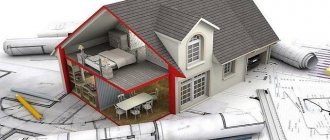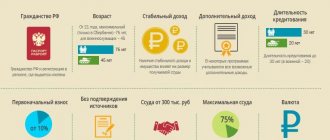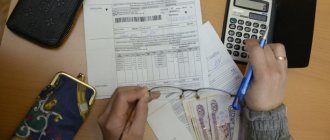Compensation for living expenses
Article 160 of the Housing Code determines the procedure and regulates the provision of compensation payments for payment for residential premises and housing and communal services on the terms and in the manner established by regulations. Compensation for housing and utility costs is paid from state and municipal budget funds.
The amount of compensation payments is included in the family total income and is taken into account when calculating the subsidy, which is provided in accordance with Article 159 of the Housing Code.
Compensation for expenses, along with subsidies for housing costs, is an effective measure of social protection for the population, in particular for those citizens who have low incomes. Or those who, due to objective or subjective reasons, are unable to pay for housing and communal services and pay rent without significant damage to their standard of living. This is especially relevant in times of reforms carried out in the housing and communal services sector and a noticeable increase in the level of rent for an apartment.
Apply online
On the State Services portal, you can fill out an application form for a subsidy for housing and communal services and take it to the MFC. This will save you time; the service employee will only reassure him.
The electronic method is suitable for submitting an application online.
To apply, you need:
- Register for State Services.
- Scan all documents prepared in advance.
- Login to your personal account:
- find the “housing and utilities” section;
- then refer to the section “On receiving housing and communal services subsidies”;
- click and enter;
- fill out the form that appears
- send scanned papers;
- wait for the message “Processed”;
- In due time, contact the MFC with the originals of the decisions;
The concept of compensation for payment of living space and utilities
The essence of the state's compensation policy lies in the process of reimbursing certain categories of persons for their expenses in the amounts established by law. To begin with, persons entitled to receive compensation payments bear the costs associated with paying for a residential apartment. Then the expenses incurred (or part of them) are compensated by the provided payment in cash equivalent.
Previously, there was a system of “in-kind” benefits in the form of discounts. Citizens receiving benefits were partially exempted from paying for living space and housing and communal services.
The system of providing compensation for expenses for housing and housing and communal services in the future should abolish the system of providing “discount” benefits, which are less beneficial for the state.
Resolution No. 441 dated August 26, 2004 established a federal standard for the threshold limit of expenses for paying for an apartment and housing and communal services. This threshold should be no more than 22% of the total income of the entire family.
Cash compensation for payment for housing is provided subject to the absence of debt for the apartment and for housing and communal services. If there is a debt for living space, the provision of compensatory compensation is possible subject to the condition that the citizen formalizes an installment plan for the payment of debts and conscientiously fulfills the terms of such an agreement.
The nuances of receiving housing and communal services subsidies at the MFC
- The data provided by the applicant must reflect only reliable information.
- All income of family members must be indicated (those who are not working indicate the reason and submit a certificate of registration with the employment service).
- The application for housing and communal services subsidies through the MFC indicates the reasons why you need the benefit at the moment of submission.
All these nuances should be taken into account when submitting an application, then there will be no obstacles in providing financial assistance from the state.
Who is entitled to compensation payments?
Housing legislation establishes categories of persons entitled to state support, which consists of providing compensation (or subsidies). These include:
- owners of residential apartments;
- persons temporarily using residential apartments of the relevant housing stock;
- tenants who have entered into a rental agreement for a private residential property;
- members of housing cooperatives.
In addition, a person applying for compensation for payment of living space and housing and communal services must meet the following requirements:
- such a person’s expenses for utility bills must be more than 22% of the total income of the entire family;
- be a citizen of the Russian Federation;
- be registered in the living space, the expenses for which are subject to compensation;
- have no debts to pay for the apartment and for housing and communal services.
Cash compensation payments are also established by local authorities. For example, according to the decision of the governor of the Khabarovsk Territory, in November 2020, the threshold index for increasing payments for housing and communal services was determined at the level of 7%. Residents of the region whose monthly payment exceeded this indexation level will be provided with compensation for utility bills starting in January 2020. It is credited automatically. The amount of compensation is indicated in the subscriber's receipt; an application from the homeowners is not required.
Collecting documents
To apply for a subsidy for utilities, you need to submit a whole package of papers confirming the identity, family composition, income, and expenses of the family applying for help from the state. The documentation that needs to be collected includes the following items:
- statement;
- photocopies of passports or identity cards of the applicant and his family members living with him;
- proof of identity and citizenship of a foreigner, if an agreement has been concluded with the country of his citizenship on the extension of provisions on the provision of subsidies;
- documents, including court decisions recognizing persons as members of the applicant’s family;
- birth certificates of the applicant’s family members under 14 years of age;
- documentation confirming the individual’s right of ownership or use of an apartment or other residential premises;
- certificate of family composition from place of residence;
- documents on the welfare of the family for six months (certificates of income of each member, which include wages, pensions, scholarships, the amount of unemployment benefits, as well as tax returns for individuals);
- statement of personal accounts, from which it is clear that there is no debt;
- any evidence confirming the rights of the applicant or family members to receive benefits and compensation, as well as other types of social assistance.
Filling out the established form, to which all documents for the subsidy are attached, is filled out with the following information:
- name and details of the government agency to which the individual applies for a subsidy;
- personal data, passport details, address and other contacts;
- information about family members permanently residing at the applicant’s address, including details of their main documents (passports/birth certificates);
- full address of residence;
- current account in a banking institution and the name of the financial institution in which it is opened.
Having determined what documents are needed for the subsidy, collecting the required package of papers and evidence, the individual has the right to submit them to the government agencies authorized to provide assistance in person, through a representative, via the Internet (public services portal or MFC), or by post. An application for a subsidy is considered within ten days from the date of receipt by the specialist. The correctness of the documents, their authenticity and the reliability of the information specified in them, the level of family income and the percentage of the cost of housing and communal services in total income are subject to verification. Documents are checked by specialists, including by sending requests to the relevant government agencies. If not all documents required to receive government funds designed to help pay for housing and communal services have been submitted, consideration of the application is suspended. If the applicant does not correct the deficiencies within 30 days, he will be denied a subsidy.
Thus, in order to receive a subsidy, it is very important to collect a complete and correctly executed package of documents that can confirm and provide the required information about the applicant and his right to receive assistance from the state. It will be possible to correct deficiencies in the submitted documentation within a month.
Reimbursement of expenses for housing and communal services for disabled people
Among all categories of persons who have the right to monetary compensation to pay for housing and communal services, a significant proportion are disabled people. Social support for the latter varies significantly depending on the region of residence and disability group.
However, all disabled people, without exception, are entitled by law to compensation for expenses for housing and utilities. Such benefits are provided not only at the federal level, but also at the local level. The federal center reimburses expenses if the house where a disabled person lives is listed as federal property.
If the building belongs to the municipal housing stock, compensation for disabled people is issued by the local municipality.
Not only disabled people, but also families raising a disabled child receive the right to compensation for expenses for housing and housing and communal services. The compensation provided by law is 50% of the payment for all housing and communal services, regardless of the region of residence.
Compensation is due for the following types of services:
- for expenses related to social rent and housing maintenance;
- for expenses related to the repair and management of the house;
- for the costs of paying for electricity, gas, heat supply, water and waste removal;
- expenses associated with the purchase of fuel are partially reimbursed. Such compensation is available to disabled people living in houses that do not have central heating.
Grounds for refusal to reimburse apartment expenses
Housing legislation establishes the form of compensation for payment of living space and housing and communal services: exclusively in cash. If a citizen does not fulfill his payment obligations, which must be subsequently compensated, he has no expenses and, therefore, grounds for a refund.
For these reasons, Article 160 of the Code was supplemented with Part 3, which establishes that compensation for expenses is provided to persons who do not have debt for rent and housing and communal services. This measure of influence is aimed at stimulating the population to conscientiously fulfill obligations to pay for living space and housing and communal services.
If the payer has a debt, this is grounds for suspending compensation payments. After repayment of the debt, compensation payments are resumed.
At the same time, Part 3 provides for the provision of compensation payments for existing debt. The conditions for this are an agreement on the payment of debts in installments for payment of residential premises or housing and communal services, concluded with the creditor (the terms of the agreement must be fulfilled in good faith). The creditor party under such an agreement may be a management organization, partnership or housing cooperative. Mechanism for providing compensation payments
As mentioned earlier, compensation is carried out in cash. Expenses for payment of living space and utilities remain the same and are not subject to reduction by the amount of compensation payments provided.
Compensation payments differ from subsidies (which are transferred even before the payment for housing is due) in that they are “subsequent” in nature. In other words, they are provided after housing and communal services have been paid.
Amount of compensation payments
The amount of benefits provided by law, as a rule, is 50% of the total amount of expenses for payment for living space and housing and communal services. Many people are concerned about the question of why, when paying compensation for housing and communal services, they return less than the amount paid?
When a citizen is registered in the apartment, who by law has the right to benefits and no one else is registered besides him, the corresponding compensation for rent expenses is issued for the entire area of the premises and for the full volume of services consumed.
If there are still residents registered in the living space, money is returned in the amount of the share of the living space that falls on such a beneficiary.
In the same proportions, part of the housing and communal services consumed by the beneficiary will be reimbursed. Thus, cash compensation payments for residential premises and housing and communal services are calculated only on the share of the beneficiary registered in the apartment.
When establishing the amount of compensation payments as a percentage of the applicable amount of payment for major repairs and maintenance of the building and premises, as well as tariffs for housing and communal services, in the event of a change (increase) in the amount of payment, the amount of compensation for expenses for paying for residential premises and utilities will also change towards increase.










